Advice
Gay clone wonders if he’s part of an ant colony
Why do we cede control of our social lives to others?

Michael,
Looking at some photos from my weekends at the beach this summer, it struck me that me and my friends (gay men in our 30s-40s) all pretty much look alike. Practically the same haircut, gym body, swimwear, smile. I almost couldn’t tell who was who.
This got me thinking. I live in the same apartment building as a lot of my friends. We all have similar furniture and watch the same shows and eat at the same restaurants and go to the same clubs and dance to the same music and drink the same drinks and vacation in the same places and work out at the same gym and belong to the same sports leagues and go to the same concerts and have the same routines.
I’m not even sure who makes the decisions about what to do. Something is popular, or becomes popular, and it seems like fun and we’re all doing it. Then it’s on to the next thing. But who is deciding what all of us are doing, not doing, or no longer doing?
I think I’m happy, generally, having fun, but I have this strange feeling like I’m part of an ant colony instead of being an individual.
Is this just the way it is? We find our tribe and then we’re all going through life together like this?
Michael replies:
I think you are facing an unavoidable dilemma that comes with being human. How much do you give up your own individuality to fit in? Put differently, what price are you willing to pay, to live an honest life and be known as the person you really are?
Did you come out—which takes great effort and brings some risks—to live a life that is right for you? Or to live pretty much the same life that your friends are living?
If you are happy doing all the same things as your friends, without even knowing for sure why you’re spending your time (that is, your life) doing these things, no problem.
But you feel like you’re part of an ant colony. So clearly, this way of living doesn’t sit all that well with you.
What would you be doing if you weren’t following the group agenda? How would you cut your hair? Would you go to the gym as much? What shows would you like (or not like) to watch? Where would you vacation? Do you like the drinks you’re ordering?
And some more important questions: What do you deeply care about? What are your values? What are the sorts of things you want to dedicate your life to? Are you living in a way that reflects any of this?
This may be the only life you get. Using it well (in my view, at least) means deciding for yourself who you want to be and how you want to live.
Sometimes people are afraid to be different out of fear that they won’t fit in with their friend group. People often tell me they’re worried they will be criticized or viewed negatively for wanting to do things that are different from what “everyone” likes to do. No one wants to be left out of parties or dinners or vacation plans.
Do you think your friends would still want to spend time with you if you weren’t always on board with “the plan,” or suggested some new ideas for activities that you were genuinely interested in?
It’s possible that if you start developing more of an individual identity, you might fit in less with some (or even all) of your friends. Feeling lonely or unpopular is not fun. You may have to decide if that’s better or worse than putting on a persona to fit in and be accepted.
It’s also possible that you can be more thoughtful about what you do, sometimes say “no” and still be part of your friend group.
Even if your friends aren’t always on the same page, I’m hopeful you can continue to have close relationships with at least some of them. A real friendship should be able to tolerate different views and different interests. How could it be otherwise, when all of us are different in some big ways, even from our closest friends?
Thinking about your dilemma through this lens, you could view sharing more of yourself with your friends and letting them know you better as an invitation for greater closeness.
If you make any moves along these lines, perhaps you will find that some of your friends have similar feelings. You might be less alone than you think.
In any case, you will be choosing a more honest life and the opportunity to be known for whom you really are.
(Michael Radkowsky, Psy.D. is a licensed psychologist who works with couples and individuals in D.C. He can be found online at michaelradkowsky.com. All identifying information has been changed for reasons of confidentiality. Have a question? Send it to [email protected].)
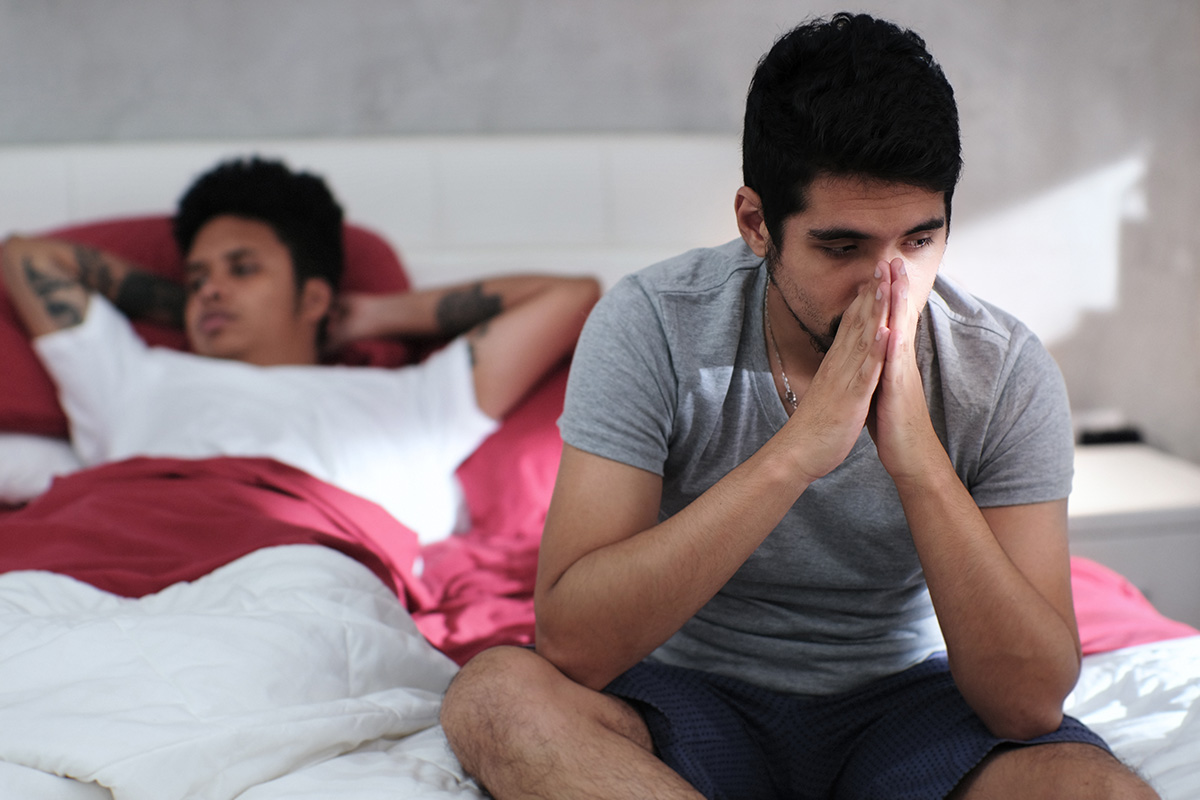
Hi Michael,
I’m in a relationship I think I don’t want to be in.
Ed is very sweet and that’s part of the problem. He is always solicitous of me, caring, kind, agreeable. I don’t want to hurt his feelings, which I certainly would do if I dump him.
We’ve gotten into what is now a serious relationship because of him, not me. He kept asking me out on one date after another, and I kept saying yes. He proposed being exclusive, and I said yes.
I was lonely, Ed’s cute and a nice guy, and it felt good to be cared about.
Ed is great at planning a fun life. Dinners, vacations, socializing. My life is way more exciting than it used to be. Ed takes the initiative on everything and he’s very good at it.
But I feel smothered, like I don’t have a say in how I live and what I do. We spend all our time together. And my friends are now “our” friends because he always joins me when I get together with them.
I can’t talk about this with him because I don’t think he can handle it. If he sees the least sign of me being upset, he says, “What’s wrong? Are you mad at me?” with this vulnerable tone in his voice. He’s told me he’s afraid of losing me when I’ve shown any unhappiness.
I’m no longer attracted to him. I don’t know why, he’s as cute as ever.
Sometimes I wonder what’s wrong with me. I have a good-looking, caring boyfriend. So many guys want this. I should be happy. But I’m not.
On the other hand, I’m afraid that if I break up with Ed I will be lonely all over again and maybe never find such a caring person.
Any guidance you have would be appreciated in how to think about this and sort it out.
Michael replies:
This relationship is giving you all sorts of opportunities to become a more solid person.
First point to consider: If you can’t set boundaries, you will spend your life twisting yourself into a pretzel to accommodate others. That’s what is happening now with Ed.
When we are struggling to succeed at an important life skill, as you are here, it’s helpful to think how our personal history may be contributing to our being stuck.
Some possibilities for you to consider: What example did your parents model? Perhaps they had trouble setting boundaries in their relationships, so you didn’t learn how to do so. Or perhaps when you were growing up, you didn’t have much say about what you could or couldn’t do, so you didn’t learn you could speak up about what is important to you.
I’m painting with a broad brush here, just to inspire your own thinking. While our lives aren’t rigidly determined by our pasts, the ways that we learned to relate as we grew up do have a powerful influence on how we live in the present. Having some sense of what has shaped our operating system can help us loosen up and try new ways of behaving.
Second (and related) point: You cannot go through life without ever disappointing anyone or you will (as noted above) start to resemble a pretzel. Yes, you’ll likely upset Ed when you tell him that you’re unhappy in the relationship. But if Ed is going to address his clingy and needy behavior, he needs to hear this.
At their best, relationships challenge us to grow. This relationship is pushing you to tolerate disappointing someone you care about, in the service of saying what you need to say. And guess what? Your letting Ed know where you stand will challenge him to work on his own relational wobbliness. Very cool.
Third point: Why are you not stepping forward with your own ideas about what you want to do and how you want to live? You are letting Ed do all the work. What is up with that?
One obvious explanation: Your difficulty setting a boundary is stopping you from asserting what you want. In other words, your inability to say “no” is leading you to feel stifled in this relationship. Good news: you have the power to change this.
Another possibility: Maybe you don’t actually have much in the way of interests or ideas for what you would like to do, and Ed is merely filling the void so that the two of you have some kind of life together.
If so, I encourage you to start thinking about what is meaningful to you. Developing a self—figuring out what is important to you, what you care about—is one of the great tasks and great joys of being alive. If you just keep doing what others around you want—boyfriends, friends, family—you may keep feeling resentful and will squander your life.
I don’t know if you would actually enjoy being with Ed if you do the work to become a solid person who speaks up about what is important and brings his own agenda to the relationship. While it’s your decision to do so or not, I urge you not to decide based on fear of stepping outside your comfort zone.
And please consider that this work would help you in any future relationship, if you end things with Ed.
One more point: It’s no surprise that you’ve lost interest in having sex with Ed. Being enmeshed with someone as tightly as you describe your fusion with Ed is a desire-killer. Perhaps this would change if you give yourself some room to breathe.
Michael Radkowsky, Psy.D. is a licensed psychologist who works with couples and individuals in D.C. He can be found online at michaelradkowsky.com. All identifying information has been changed for reasons of confidentiality. Have a question? Send it to [email protected].
Advice
How to rebuild trust after infidelity
You cannot use your partner’s bad behavior to justify your own
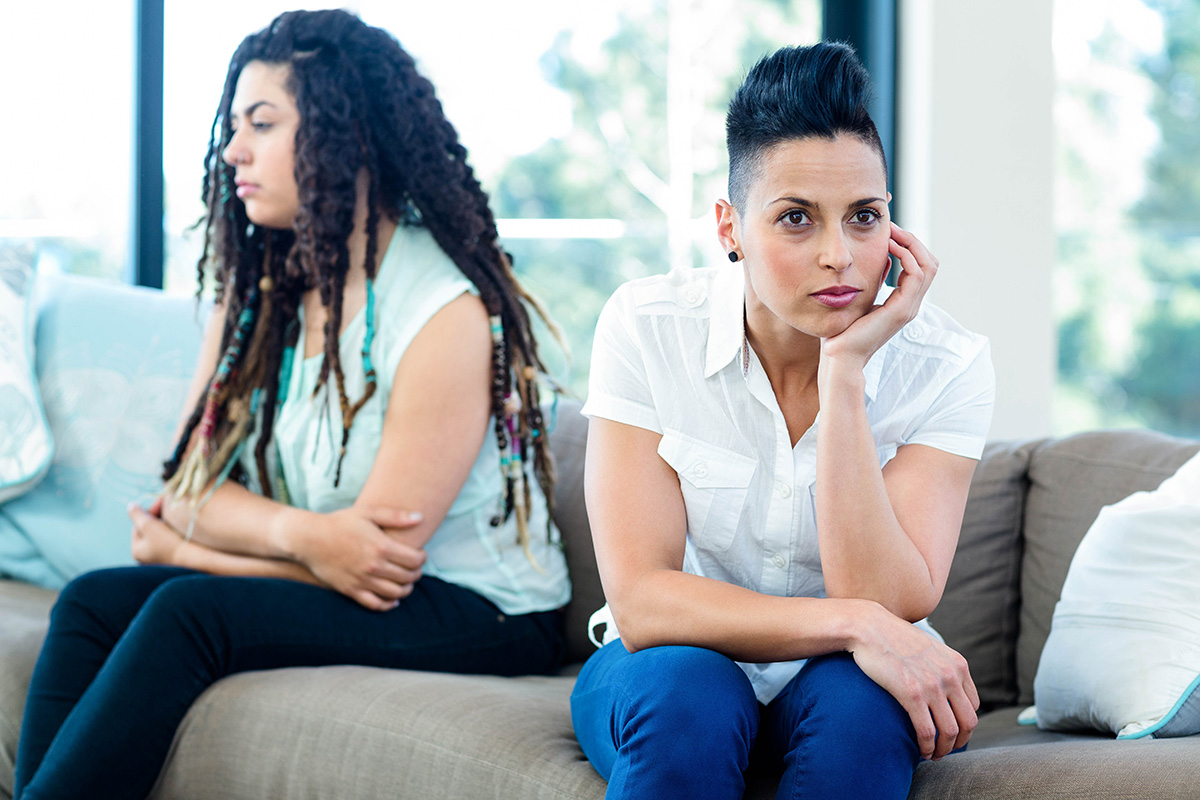
Last month’s column featured a letter from someone who had cheated on his boyfriend, and was struggling with the boyfriend’s unwillingness to forgive him despite his contrition. He wondered what he could do to earn back his boyfriend’s trust, and noted that he was feeling increasingly resentful over the nonstop scrutiny and contempt.
My reply in a nutshell: If you’ve stepped out of your relationship, and want to do better going forward, the main person whose trust you need to earn is your own. Figure out your own standards (with input from your partner, of course) to be a boyfriend who deserves his partner’s trust, and live up to those standards. Strive to honor your partner’s requests to demonstrate your trustworthiness, but when doing so comes at too high a cost to your self-respect or your affection for your partner, you may need to set a boundary.
Now I’d like to address the other side of this dilemma. If you’ve been cheated on, what can you do to build a trusting and loving relationship with your partner, going forward? Here’s what I would say to the boyfriend.
For starters: You’re in a tough spot. It’s natural and understandable to be hurt, heartbroken, and furious with your partner. But if you want to have a loving relationship with this guy going forward, you are going to have to find a way to not let these feelings run your show for too long.
As is true for your partner, the person whose trust you most need to earn is you. Can you get better at paying attention, going forward, to any signs that your partner is stepping out of the relationship? Did you miss any hints that something was amiss? Were you ignoring data about your partner’s behavior and character?
You can’t go too far in either direction here. On the one hand, ignoring your “spidey sense” that something’s wrong is a terrible idea. On the other hand, ongoing scrutiny and interrogations create an imbalanced relationship and often lead to your partner wanting to get away with things. That’s just a natural consequence of being constantly watched.
A big part of your work is to determine if your partner is sincere in his desire to be honest going forward and devote himself to building the same kind of relationship that you want to build. This means assessing your partner’s character: Do you have a clear read on his values, and do you respect them? Can you get a good sense of whether he is just telling you what you want to hear in order to stay in the relationship, or being honest about where he really stands?
You can never know for sure. You can only do your best to see your partner and your relationship accurately. One thing is certain, though. If you are going to be in a close relationship, you must accept that you are going to be vulnerable to heartbreak. In any long relationship, partners do at times hurt each other, sometimes intentionally, sometimes unintentionally. There is no way around this.
Of course, that doesn’t mean you must stay with someone who cheated on you. You get to decide whom you want to be with, what is not forgivable, and when you do not want to forgive.
If you decide that you have good reason to stay, you will have to develop your ability to calm yourself when it feels like something might be wrong and you are starting to freak out. Remember, your alarm system is likely on high alert after having been betrayed, which means you may easily panic when something might be amiss.
So when your partner doesn’t show up when he said he would, or doesn’t reply to a text or answer his phone, take a moment to quiet your mind — perhaps by taking some slow deep breaths, perhaps simply by reminding yourself that your judgment may be “off” right now — and not rush into accusations or a downward spiral.
Every time you are able to make this move, you will be strengthening your ability to remain calm and thoughtful under very tough circumstances. That is a great skill to have in all arenas of life.
One more point: If you want to be angry or walk around feeling like your partner owes you for the rest of your existence, you might as well end the relationship, because you’ll never have a loving relationship under those conditions. You cannot use your partner’s bad behavior to justify your own bad behavior. For a relationship to succeed, each partner must strive to be someone worth being in a relationship with.
Michael Radkowsky, Psy.D. is a licensed psychologist who works with couples and individuals in D.C. He can be found online at michaelradkowsky.com. All identifying information has been changed for reasons of confidentiality. Have a question? Send it to [email protected].

Dear Michael,
I cheated on my boyfriend and I can’t get him to forgive me.
A few months ago I slept with another guy. I can’t really explain why I did it. Sam and I have had an agreement to be monogamous and I believe in monogamy.
Rick, the “other man” and I, have been friends for a long time and it just happened. Rick is very attractive, I think he has a great personality, we were having dinner together and I’d had a bit too much to drink. We started making out and then left together and went to his place.
Unfortunately, a friend of Sam’s saw us kissing at the restaurant and reported me to Sam. He confronted me and I confessed to everything (not just the kissing).
I am very disappointed in myself and I’ve communicated that, over and over, to Sam.
But he continues to be angry with me. Every time I go out, he tells me to “behave.” He told me I can’t see Rick anymore and he has my “find my phone” feature activated so that he can always check my whereabouts. He also has all my passwords and periodically checks everything. It’s like being randomly drug-tested by my boyfriend.
On one hand, I understand. I’ve destroyed his trust in me and I need to rebuild it.
On the other hand, it’s hard to live with his obvious contempt for me and his skepticism when I am trying to live up to a higher standard, going forward.
The truth is, I am starting to resent the constant scrutiny and contempt. I actually told him that and he blew up at me, telling me that I have no right to feel this way after hurting him as I have done.
Is one episode of infidelity really that bad?
According to Sam, yes — because I did it and didn’t tell him. He says he never would have known if his friend hadn’t told him about it, and this makes him wonder what else I’ve done, or might do.
All I can say is, I am contrite and told him everything I’d done when all he knew was that I had made out with someone. So I am wanting to be honest.
I don’t know how it’s possible to recover from this.
Michael replies:
You can’t have a loving relationship when one partner is the probation officer and the other partner is on probation. As you are finding, you wind up in a cesspool of resentment and suspicion.
Here’s an alternate approach: First, focus on giving Sam reason to trust you, every hour and every day. This means behaving in a way that is trustworthy.
The big question: What constitutes trustworthy behavior?
Of course, you must consider Sam’s feelings and comfort level in deciding on how you should conduct yourself as his partner. But you can’t base your standard only on what Sam demands; and you can’t do everything he demands.
That’s what you’re doing now, with all the password-checking and location-tracking, and it’s leaving you angry, scared, demeaned, and second-guessing yourself. It’s also unbalancing your relationship, because rather than being two equal partners, one of you is subservient to the other.
One more problem: it’s a fact of life that when people are being watched, they are often tempted to find some way to “cheat.” I’m not saying that Sam’s surveillance should or will drive you to hook up again; but ongoing scrutiny can certainly lead people to want to hide things. That is not a good dynamic for an intimate relationship.
Here’s an alternate way to rebuild trust: Decide for yourself how you want to behave, what standards and limits have integrity for you (again, taking into great consideration what is important to Sam). Strive to live up to these standards. Continue to follow through, day after day. You will feel proud of yourself and solid in your belief that you are a person who is trustworthy.
This may take some time. I understand well that you broke Sam’s trust, and perhaps his heart. You have to build a track record for him to see that you are holding yourself accountable.
You may be facing a dilemma, as frequently happens in intimate relationships. They have a way of forcing us to make tough choices. If you do what you think is best to be a trustworthy partner, and if some of your choices violate Sam’s demands, Sam may end the relationship. On the other hand, ongoing scrutiny and cross-examination may be intolerable for you in a close relationship.
Explaining to Sam why it is important for you to have a boundary at times, in the interest of strengthening and developing a more loving relationship, may be helpful.
While you, the partner who strayed, wrote this letter, there are important points for Sam (or anyone in his position) to consider in the interest of repairing a relationship following infidelity. I will address these in my next column.
Michael Radkowsky, Psy.D. is a licensed psychologist who works with couples and individuals in D.C. He can be found online at michaelradkowsky.com. All identifying information has been changed for reasons of confidentiality. Have a question? Send it to [email protected].

Hi Michael,
I’ve been best friends with Chris since we were kids. We’re both gay and both wound up in D.C. after college. And we’re roommates.
The trouble started about a year and a half ago. Chris, who has always liked working out, started getting absorbed in bodybuilding.
He started spending hours a day working out and all these weird powders and supplements started piling up in the kitchen.
Chris became obsessed with building muscle. When he told me he was trying steroids, I told him that was a bad idea but he told me he was doing it under medical supervision and I shouldn’t worry.
In recent months he’s a changed person. He’s short with me a lot, angers easily. He got into a few screaming matches with Matthew, his boyfriend, that I overheard. He sounded paranoid and out-of-control. Guess what? Matthew walked out on him.
I’m not proud but I did a little snooping (basically looked in his bathroom) – and the stuff was everywhere.
Last week he lost his job. He wouldn’t tell me why but I am pretty sure it’s due to his increasingly weird and angry behavior. I told him that—and told him that I know he’s using a lot more than he should (is any amount OK?)—and he majorly blew up at me. Now he’s not talking to me and he texted me I should move out and not wait until our lease is up.
I don’t know what to do. I love Chris deeply—but it seems like the guy I’ve known for 20 years is gone and has been replaced by a mean paranoid guy who is driving his life off a cliff.
I’m wondering about letting his parents know. I’ve known them since childhood and I’m hoping they can talk some sense into him. Or an intervention with all his friends (none of whom he is speaking to anymore for one reason or another, but the real reason is his crazy behavior). Maybe we could confront him and get him to stop.
But I’m not sure what the right thing to do is and don’t want to alienate him completely. Any thoughts or ideas for a good strategy?
Michael replies:
I’m sorry, I know it’s excruciating to watch someone you love struggle with addiction. I don’t think you can get Chris to stop or moderate his use.
You have shared your concerns with Chris, and he’s blown up at you. This is not a guy who wants to look at his life choices critically.
You could tell his parents, but you have to weigh the risks versus benefits. Maybe they would be able to influence Chris to cut back on his steroid use. Or maybe he’d just cut himself off from them as well, further deepening his isolation, and perhaps leading to his being even less tethered to reality.
I would make similar points about an intervention: Sometimes they have a positive impact on the person who is being confronted. Sometimes they don’t do much except rile the person up, and lead him or her to dig further into denial and isolation.
My own experience is that interventions have a greater chance of being helpful when the person can acknowledge the unmanageability of the addiction and is willing to try something different. Chris doesn’t sound like he is anywhere near that point.
Simply put, there’s no easy fix to this, because only Chris gets to decide how he wants to live his life, even if his choices are ruinous.
Here’s what you can do:
First, if Chris starts talking to you again, be supportive without being enabling. This means not criticizing him or telling him what to do; letting him know that you care about him and are there to help if he wants help; not joining him in minimizing the seriousness of his situation; and having a boundary when necessary.
For example:
If there are times when he is pleasant to be with, enjoy them.
If he’s snapping at you for no reason, you can say “hey, it’s not fun to be with you when you’re like this—I’ll see you later.”
If he’s lamenting his job loss, you might reply, “I’m sorry you lost your job—and I’m sure you could take steps to succeed in another job.”
If he attempts to start an argument with you about how his steroid use is not a problem, or that you’re blowing it out of proportion, don’t join the argument. “Sorry, I see it differently, and I’m not going to argue with you about this.”
If he continues to not speak to you, you can still continue to reach out to him now-and-then, in ways that don’t require him to respond, to let him know you that you’ll be there for him if he needs help at some point.
One more thing you can do is get some support for yourself. This is a tough situation for you as well. It’s easy for someone in your situation to feel like you’re doing the wrong thing, no matter what you do.
I’d suggest that you attend at least a few Al-Anon meetings. Al-Anon is a support fellowship for people whose loved ones are struggling with addiction. You’ll get support in recognizing that there really are limits to what you can do; in setting a boundary when you need to; and in knowing that you are not alone.
Michael Radkowsky, Psy.D. is a licensed psychologist who works with couples and individuals in D.C. He can be found online at michaelradkowsky.com. All identifying information has been changed for reasons of confidentiality. Have a question? Send it to [email protected].
Advice
My boyfriend has gained 50 pounds and won’t change
Should I stay with someone who refuses to get off of the couch?
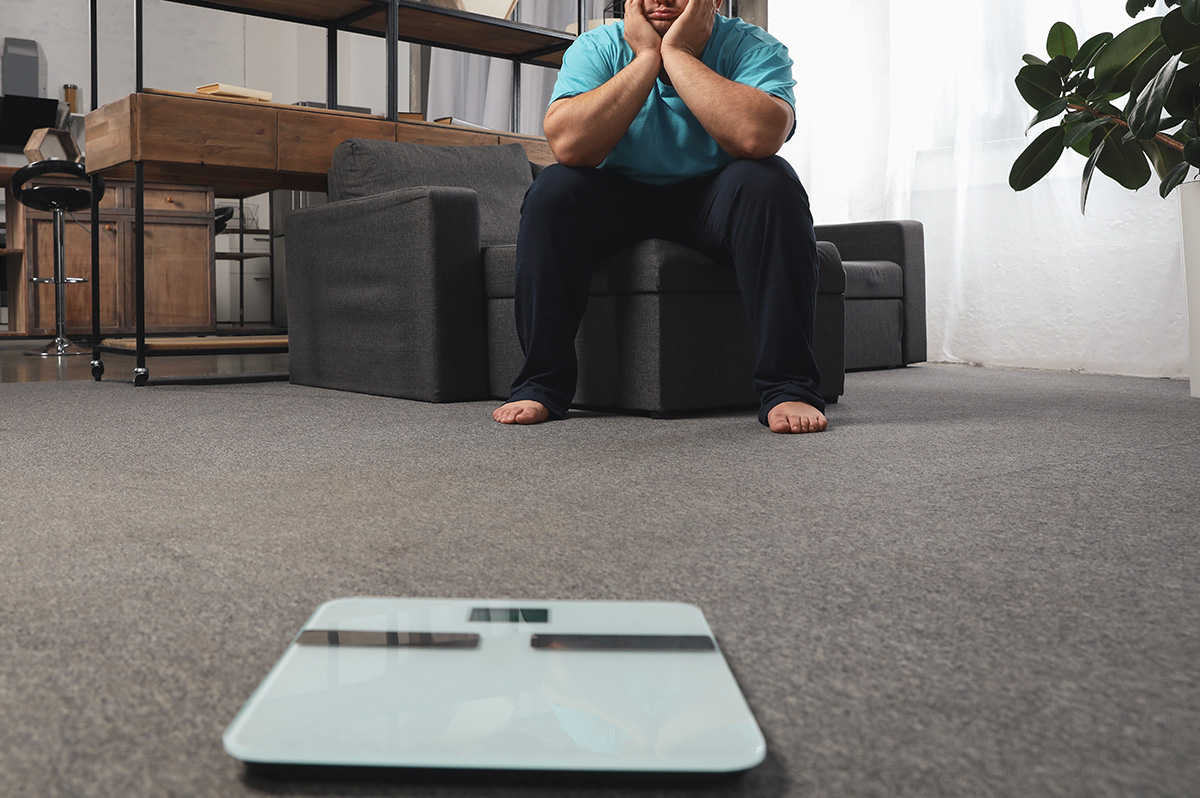
Dear Michael,
My boyfriend of five years has been steadily putting on weight and now I would say he is about 50 pounds heavier than when we met, which was the summer of 2019.
First he blamed the weight gain on COVID. Like most people we were stuck at home, anxious, and overindulging in comfort food; and the gym wasn’t an option. So I didn’t say anything and figured things would return to “normal” once we got through the pandemic.
I will say, though, that I managed to not gain much weight during that time because I found ways to exercise. He didn’t want to join me and I didn’t push.
Although we’re long past COVID, Tim hasn’t changed his ways. He never went back to the gym and continues to eat whatever he wants. I’d say his main hobby is sitting on the couch watching TV and eating junk food.
To make matters worse, his sister recently told me that historically Tim has been a heavy guy. He’d never bothered to share this with me, so I had no idea.
Evidently I met him on the tail-end of an intense push to get in shape. So he looked really good at the time, but that was temporary.
When I confronted him about this, he was mad at his sister for telling me and said I had no right to talk about him behind his back. Well, I didn’t ask her—she just brought it up, and was surprised that I was surprised.
Tim is annoyed that I keep voicing my unhappiness about his being out of shape. He says he is the same sweet and loving person I fell in love with and I’m shallow to be so upset by surface appearances.
I told him he was trying to gaslight me: If he feels that love should have nothing to do with how you look, then why did he go to all the trouble to lose weight and get in shape before we met? I feel like he did it to get a boyfriend and then thought he could just go back to being fat once he was in a relationship.
So now he’s mad at me for saying he’s basically a devious schemer. I didn’t use those words but it’s true I don’t trust him and feel taken advantage of.
Besides the weight, it’s not attractive to see him just basically lie around all the time and not take care of his body.
I asked if he’d consider some drug like Ozempic and he got really angry and said I’m awful to suggest something that might have all sorts of side effects just so that I will be happier with his looks.
The upshot is, I feel stuck with a guy who turns me off and doesn’t want to do anything about it and tells me I’m shallow for not being in love with him no matter what he looks like.
My friends tell me to dump him, but does he have a point?
Michael replies:
You get to decide whom you want to date. You are very far from alone in wanting an energetic and physically attractive partner.
It’s true that no one stays gorgeous, and has an amazing body, forever. We all have to accept the changes that time brings to our partners and to ourselves. But that is different from accepting a partner who isn’t making any effort to take care of himself.
Aside from the lack of self-care, Tim’s refusal to share significant details about his life, or his thoughts and motives around big issues, is both a trust-destroyer and a huge roadblock to your having a close or intimate relationship. And the way that Tim blows off your questions, and attacks you for being curious or confused, is a recipe for distance and resentment. It is also unkind.
Now let’s look at your part in this. I’m curious about what has been keeping you in this relationship. You haven’t said anything about what you like (or love) about Tim. All I know is that he describes himself as sweet and loving.
Maybe he has some wonderful qualities you haven’t mentioned. Or maybe it’s hard for you to stand up for yourself? To let someone down? To have a boundary when it’s important?
My biggest questions: Do you have a history of picking partners who underperform in some major ways? Or is the first time you’ve found yourself constantly disappointed by your partner, and constantly pushing him to do better?
Somehow you’ve created a life where you are hitting your head against a brick wall, getting nowhere, continuing to do it, and complaining about the pain. Tim’s made clear that he doesn’t want to do anything different, and yet you continue to push him to change. Your behavior might be leading him to dig in. In any case, it’s leaving you miserable.
In any relationship, you can certainly ask for what you would like from your partner. But you have to let go of the result. And if the answer is “no,” you can either accept it, or drive the two of you crazy.
If you do care about this relationship, and Tim, and yourself, you could propose to Tim that the two of you meet with a couples therapist. Perhaps this would help Tim to open up and to get a grip on his behaviors. It might also help you to understand why you might be keeping yourself stuck in a miserable position, so that you can raise your level of functioning in this relationship.
One more important thought: Tim’s lack of self-care and energy make me think that he is depressed. I wonder if Tim—before you met him, at least—was one of the many gay men who feel intense pressure to have a certain kind of body. It isn’t always easy, or even possible, to sustain this kind of appearance. And I wonder if he may be ashamed of where he is, which might be one big reason for his defensiveness.
Again, couples therapy—or individual therapy—might help him address whatever is keeping him down. But Tim would have to be willing to go. You can make the suggestion, but you cannot force him to change.
Michael Radkowsky, Psy.D. is a licensed psychologist who works with couples and individuals in D.C. He can be found online at michaelradkowsky.com. All identifying information has been changed for reasons of confidentiality. Have a question? Send it to [email protected].
Advice
I hate my vapid gay life of bar hopping and partying
My married straight friends seem so much happier

Dear Michael,
I’m a 39 year-old gay man. Over the past decade I’ve been watching my straight friends from college date, marry, have kids, and buy houses. Their lives seem really fulfilling.
In the meantime, like all my gay friends, I’ve been hooking up and drinking too much and partying on weekends.
I realize that I hate my gay life. I think it’s vapid. I never thought I would say this but I actually wish I were straight because I think my life would be better and easier.
I don’t think this is internalized homophobia and I don’t think I’m idealizing my straight friends’ lives. I look around me and compare their lives to my life and my gay friends’ lives and it’s obvious that their lives are more meaningful. I realize I’m profoundly depressed.
Looking to the future, I know I’ve got an expiration date when it will be absurd for me to be standing around in my underpants at a bar. And then I will be irrelevant.
I don’t want to be going to sex parties and have people look through me — or only have sex with me because they have a grandpa fetish.
And the prospect of spending my future at a never-ending string of dinner parties with conversations about art or theater seems dismal. I know that’s a cliché but I’ve known enough older gay men to know there’s a lot of truth to it.
I envy my straight friends’ marriages. They all seem devoted to their spouses.
I would love to have a true life companion. I can’t fathom what my gay friends’ marriages are really about, because they’re all always going out separately from their husbands and screwing other people. I don’t discuss this with anyone because I’m afraid they’ll judge me or say I am pathetic and hate myself. I don’t really hate myself but I am hopeless about having a meaningful life as a gay man.
Any thoughts about getting to a better place?
Michael replies:
I could tell you that your best hope of a better life is to make your peace with being a gay man; that doing so does not have to mean living a life you find vapid and meaningless. That there is no one way to be gay; that you and you alone get to choose how you construct your life. And that the accomplishments you believe give your straight friends’ lives meaning are also possible for you to achieve.
But I think you probably know all this. So the real question is, why are you continuing to live this life you despise, year after year?
Some questions to consider:
• What are you afraid might happen if you don’t keep following the crowd?
• What endeavors, activities, and causes do you imagine would give your life some greater meaning?
• What stops you from pursuing any of them or making them part of your life?
I wonder what life experiences you may have had that contribute to your being so stuck. For example: Were you discouraged from thinking for yourself or from being self-directed as a kid? Were you expected to do as you were told? Were you ever bullied or ostracized, which might make it important for you to feel part of a group even you don’t really fit?
A related question: While you say that you want a close relationship, you don’t describe efforts to find one. Thinking back over your 39 years, can you identify any reasons why intimacy would be scary or uncomfortable for you? There are a number of reasons why gay men often have difficulty establishing relationships that include both sex and emotional connection. And you may have your own reasons for avoiding closeness that are unrelated to being gay. (Discomfort with intimacy is not limited to gay people.)
One more thing to consider: Although you say this isn’t internalized homophobia, is it possible you’ve absorbed negative beliefs over the course of your life that lead you to see being gay in a negative light?
I’m asking all these questions simply to encourage you to develop some hypotheses about why you’ve been continuing to live as you’ve been living. Having some understanding of what’s holding you back, or what you’re afraid of, might make it easier to quiet your anxiety, get off autopilot, and start moving in directions you would like to go.
Regarding your being profoundly depressed: I could suggest that you work with a therapist on getting past what is keeping you from creating a better life. In addition, regular exercise (if you aren’t doing this already) would likely help your mood; and curbing your alcohol consumption would likely help you to better manage your life and your mood. (Perhaps your therapist or physician would recommend an antidepressant to help you along.)
Again, I am certain you already know all this. I don’t think suggestions are what you really need. As long as you keep your focus on all the things you hate about your life and all the sadness that you are convinced lies in your future, your life will likely remain as is.
For you to have a shot at a better life, you’re going to have to do something new (hard and scary as that might be). This might include any or all of my suggestions, or it might be something entirely different that you conceive. The essential ingredients: Recognize that you actually have a choice as to how you want to live your life; and make the choice to take action on your behalf.
Michael Radkowsky, Psy.D. is a licensed psychologist who works with couples and individuals in D.C. He can be found online at michaelradkowsky.com. All identifying information has been changed for reasons of confidentiality. Have a question? Send it to [email protected].
Advice
Ask Pastor Brandan
For those in the LGBTQ+ community who have questions about their faith, life, & the intersection of religion in their daily lives
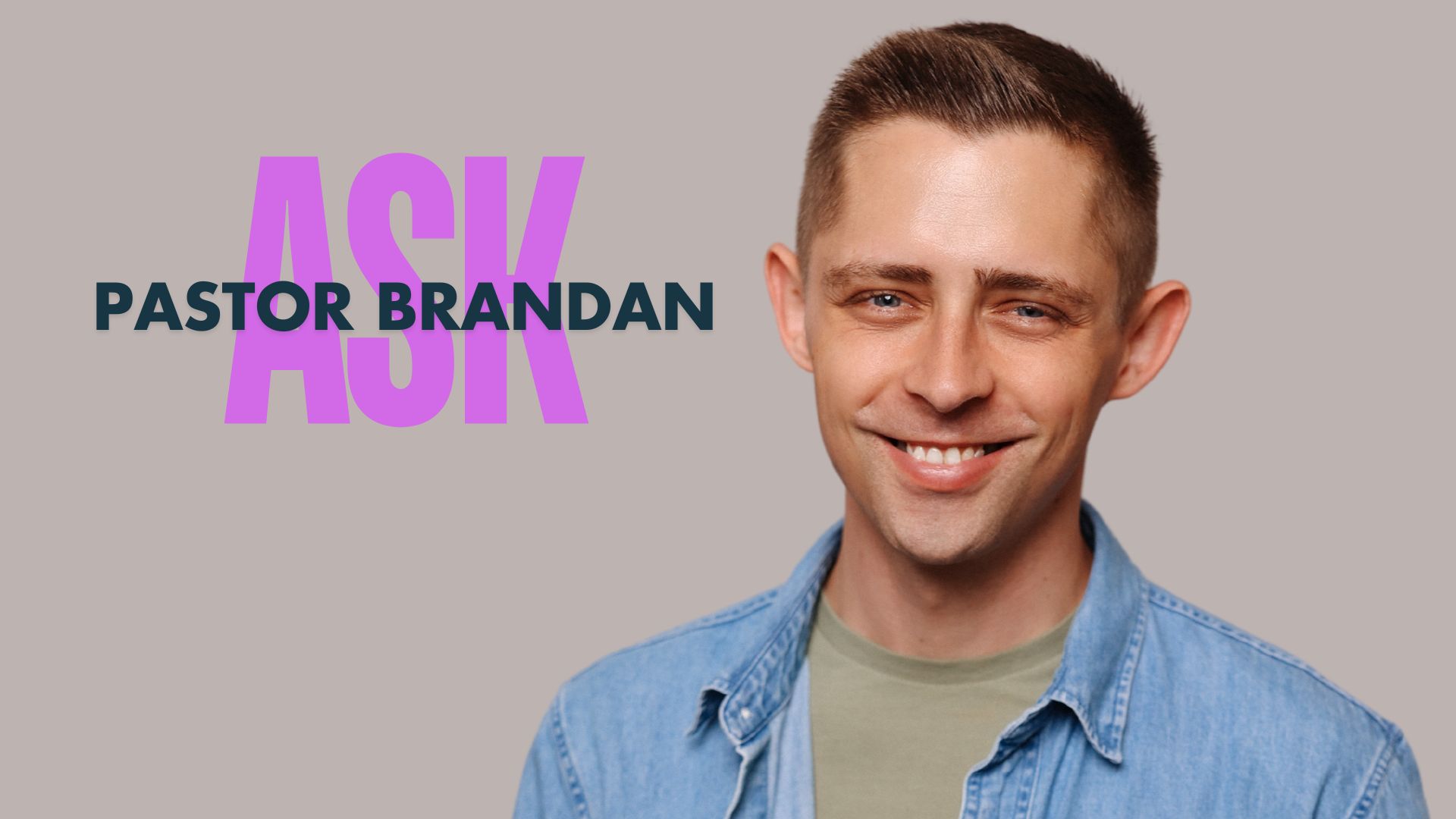
The Los Angeles Blade is pleased to introduce a new bi-weekly column for members of the LGBTQ+ community who have questions about their faith, life, and the intersection of religion with sexual orientation or gender identity in their daily lives.
From [email protected]:
“Pride Month is a time of celebration, but I often feel conflicted because of my religious upbringing. How can I fully embrace and celebrate Pride while honoring my faith?”- Caroline, Redding, CA
So many queer people live in the tension between having pride in the queer identity and dealing with the shame they inherited from a religious upbringing- this is true even for many queer people who are no longer religious! Religious trauma from toxic religious doctrine or rejection from our churches or families is very real for many queer people, and can negatively impact our mental health and our overall wellbeing for a long time.
Even as a Pastor, I seen my therapist weekly and a large amount of what we spend time unpacking is how religious experiences and beliefs I no longer hold to continue to cause me anxiety, fear, and shame. So first, know that you’re not alone. A lot of us experience this sense of inner conflict, even after being out for years!
During Pride month, you will inevitably come across a religious person on social media saying “Pride is a sin!”- but they’re being disingenuous. It’s true, the Bible does call pride- or arrogance- a sin. But there is another kind of pride, one rooted in a deep sense of gratitude- the pride that these same Christians will quickly embrace when they sing “I’m proud to be an American!”
That second kind of pride is what we’re embracing at in Queer Pride celebrations. It’s gratitude to our queer forerunners for fighting to help us live and love more freely. It is gratitude to our queer family for the love, support, and endless contributions we make to the world. And for many of us, it is gratitude to God, who made us queerly beloved and delights in us just as we are. This is what Pride, at its core, is supposed to be.
On top of the celebration, Pride is also, of course, a continuation of the resistance movement started at Stonewall, a recognition that queer folks are still marginalized and threatened in the US and around the world, and it’s a commitment to continue the fight for equality, dignity, and justice for all queer folks.
For me, channeling the wide array of emotions I feel because of the toxic religious teachings I grew up with towards activism and advocacy has been a healing path for me- so perhaps when you feel inner conflict around Pride, channel that towards speaking up and acting up for your fellow queer siblings. Turn that inner conflict towards speaking words of truth- that queer people are made in the image and likeness of God and are just as worthy of life and love as every other person in the world.
Don’t allow your inner conflictedness to bog you down in shame during this season- allow it to motivate you to celebrate harder, advocate more fiercely, and enjoy this sacred month. Happy Pride!
“I was taught that sex outside of marriage is a sin, but as a queer person, marriage hasn’t always been an option. How can I understand my sexual ethics in a way that aligns with both my faith and my identity?” – Shane, New York, NY
Hey Shane- thanks for this question. You want to know what’s crazy- there is not a single verse in the Bible that says premarital sex is a sin. In a few places, some translations of the New Testament render the Greek word porneia as “fornication”, which does mean premarital sex, but virtually no Greek scholar believes that is an accurate translation of that word.
Instead, what the Bible actually condemns is excessive sexuality- meaning allowing our sexual desire to control us. This is a sexual ethic that I think all people should embrace- being in control of and mindful about how you engage your sexuality, rather than using it as a compulsive behavior or as a means of escaping or numbing ourselves.
One of my favorite Scriptures that guides my own ethics comes from Paul in 1 Corinthians 6:12 when he writes “All things are permissible, but not everything is beneficial”. In other words, this ethic is based not on a rigid sense of rules, but on considering what is beneficial- healthy, and good- for us.
Whenever I think about my own sexual behavior, I try to ask myself both why am I doing this and if this is beneficial to me. If I can be mindful about my intentions, knowing that I am entering into a sexual experience consensually, joyfully, healthily, and with clarity of mind, then I can’t see why I would consider it sinful or wrong.
There is no one-size fits all sexual ethic that is prescribed by the Bible, so by asking this question each of us can discern what is a beneficial and healthy sexual practice for us. The only thing the Bible is concerned with is that we maintain self-control and that our actions are always loving towards God, neighbor, and self. I hope this helps!
If you have a question you’d like Pastor Brandan to answer please send it to:
******************************************************************************************

Rev. Brandan Robertson is a noted author, activist, and pastor based in New York City. Known as the “TikTok Pastor,” he engages over 220k followers and 5.5 million views with his inclusive theological content. Robertson has authored, edited, or contributed to 23 books and his writings have appeared in esteemed publications like TIME Magazine and The Washington Post. He holds degrees from Moody Bible Institute, Iliff School of Theology, and Eastern Illinois University, and is pursuing a PhD in Biblical Studies at Drew University.
Advice
The Los Angeles Blade introduces ‘Ask Pastor Brandan’
For those in the LGBTQ+ community who have questions about their faith, life, & the intersection of religion in their daily lives

The Los Angeles Blade is pleased to introduce a new bi-weekly column for members of the LGBTQ+ community who have questions about their faith, life, and the intersection of religion with sexual orientation or gender identity in their daily lives.
From [email protected]:
I grew up in the church, and it was a really meaningful experience for me. But once I came out as gay, I saw Christianity’s true colors- no one acted like Jesus, they only condemned and rejected me for who I loved. Why would any gay person want to be a part of such a hypocritical religion that has no room for us? – Jace, Philadelphia, PA
******************************************************************************************
Jace, thanks so much for your question. First, let me say- I get it. While I am a Christian pastor, I have often found myself asking why I keep showing up to participate in a religion that has done so much harm to me personally as a queer person and to so many in my community.
There have been periods on my journey where I have all but walked away from the church- and those periods have been really healing for me. No one needs to participate in organized religion to have a meaningful life. But for me, I’ve always been drawn back because of a sneaking suspicion that the Christians with the loudest megaphones and the most power don’t actually represent the radical, social and spiritual movement that Jesus began.
The more I’ve studied the Bible and the Christian tradition through the ages, the more I’ve realized that the modern Christian establishment is a distortion of the faith of Jesus and of many millions of Christians throughout the ages. I’ve spent nearly a decade studying the Bible in academic settings and have been blown away by how much of what is preached as “clear” truth- like that being gay is condemned as a sin in Scripture- is far from the truth. There’s not a single verse in all of the Bible that says anything about homosexuality, but rather six verses that are condemning a common ancient form of sexual exploitation between men of high status and men of lower status.
Isn’t it strange that the modern Church has interpreted these verses to condemn loving, consensual same-sex relationships while turning a blind eye to the exploitation that high status men have been enacting towards lower status folks in their own churches? I also discovered that there is a ton of queer stuff in the Bible- there are men who fall in love with each other, women who commit their lives to one another, boys who dress in women’s clothes, and gender-queer individuals who are welcomed with joy into the early church. That’s all really in our Bible.
When I started to realize this ignorance and hypocrisy, I personally felt motivated to reclaim the faith of Jesus and the Bible for myself and my community. And when I started this work, I quickly discovered that there is a long lineage of queer people who have been queering Christianity for centuries.
I also discovered that there have been other traditions- like the liberationist, womanist, and feminist traditions- that have reclaimed the Christian faith as a source of inspiration for their own spirituality and fight for a more just and equal world. But the largest institutions of Christianity have consistently marginalized these traditions and voices, which is why most people don’t know about them and just assume that Christianity is inherently corrupt. (Which again, is a reasonable assessment based on what is seen publicly!)
So I’ve made it my work to not only reclaim this faith as a queer person, but to work publicly to expose the distorted version of the faith that is being perpetuated and shine a light on the millions of progressive, inclusive, justice-oriented Christian communities that exist around the world.
I do this work not because I think that queer people need Christianity, but because I have met thousands of us who still feel a deep connection to our faith and have a right to claim it as our own. No one- be it a pope, a bishop, a denominational president, or a local pastor- has the authority to tell us we cannot and do not belong. And there is space for us- most people don’t realize that a majority of mainline Christian denominations in the U.S. are fully affirming of queer people today- so while the largest and loudest churches may spew toxic queerphobia, across every state in our nation there are hundreds of inclusive churches that welcome queer people to come just as we are.
I also think it is vitally important for progressive Christians to make our voices louder in society, taking some of the power and authority away from the queerphobic Christians who are just assumed to be the ones with the authority to speak for “true Christianity”.
When we simply write off Christianity- or any religion- as inherently queerphobic, we are consigning millions of queer people around the world to suffering, because in every corner of the globe there are governments enacting policies, justified by their queerphobic religious beliefs, that criminalize or discriminate against queer people.
One way that we can help to combat this is to show that there are other ways to be Christian- ways that are rooted in a good reading of the Biblical text and that take seriously the teachings of Jesus- that affirm queer people’s lives and love. Because the truth is that Christianity isn’t going away any time soon, so it’s vital that the queerphobic versions of it are countered with a progressive, inclusive faith.
So Jace, all of this is to say that if the Christian faith (or any religion) is a source of trauma and harm for any queer person, I say leave it behind. But if you feel drawn to faith but feel like there’s no space for you, know that there has always been a faithful strain of Christianity that has been committed to inclusion, reformation, and justice, and there are likely communities near you that will welcome and affirm you as a queer person if you’d like to be a part of them. (I recommend using gaychurch.net to find these communities!)
At the end of the day, I’ve come to know, deep in my bones, that queer people are loved by God and that we have so much to offer the Church and the world, and I pray that more and more people will wake up to see that! Thank you for your question!
If you have a question you’d like Pastor Brandan to answer please send it to:
******************************************************************************************

Rev. Brandan Robertson is a noted author, activist, and pastor based in New York City. Known as the “TikTok Pastor,” he engages over 220k followers and 5.5 million views with his inclusive theological content. Robertson has authored, edited, or contributed to 23 books and his writings have appeared in esteemed publications like TIME Magazine and The Washington Post. He holds degrees from Moody Bible Institute, Iliff School of Theology, and Eastern Illinois University, and is pursuing a PhD in Biblical Studies at Drew University.
Advice
After 16 years together, my wife suddenly wants children
‘I don’t want to be stuck in restrictive heteronormativity’

Dear Michael,
A few months ago you answered a letter from a guy who wanted a baby but his boyfriend didn’t. I’m in the opposite situation. Carol and I have been together for 16 years (we’re married) and all of a sudden she wants to have a baby. This was never on the table until her dad died last year suddenly of a heart attack.
Since then she’s been a different person. She tells me that she wants to focus on something “bigger” than just enjoying life and also wants some sort of sense that “life will go on.”
To me, being queer has always meant that we get to fully live life in the present, for us. We don’t have to focus on having kids and all that entails: fertility stuff, sleep deprivation, diapers, babysitters, PTA obligations, college tuition, etc. Let straight people deal with those headaches while I enjoy myself.
I don’t want to be stuck in restrictive heteronormativity, giving my time and energy to a kid who’s going to go from crying to whining to tantrums to rebellion to not talking to me. And then expect me to pay their bills after they’re 18.
And why crowd the planet even more? In my opinion, having a baby on this planet is selfish sentimentality.
Carol and I always saw 100 percent eye-to-eye on this issue but now she’s gone over to the other side. I have shared all of the above to shake some sense into her but haven’t gotten anywhere. This was not our agreement at all.
I know you can’t change someone else, but doesn’t she owe our relationship a commitment to the life we already agreed on? I’ve suggested grief counseling but she says no.
Michael replies:
No one owes their partner a commitment to not change. It’s a guarantee that we all change over time. Relationships challenge us to stay with someone as we both evolve in big and sometimes unexpected ways over the years. There’s no way around this challenge if you want to stay happily married.
It’s also true that you don’t have to keep living with someone who changes in ways you don’t want to accommodate. So, if Carol is certain that she wants to be a mom and if you are certain that you don’t, you can leave.
It makes sense that you’re sad and angry (putting it mildly) when your wife suddenly wants to completely upend your life. That said, you’re not going to improve your marriage by criticizing Carol or insulting her wish to parent. And if you pressure her to give up a deeply held wish, she will likely resent you.
Instead of these tactics, how about being curious regarding her desire to parent? What “bigger” meaning is she hoping to get from life? How does she think her father’s untimely death affected her, not just on this issue but possibly in other ways as well?
There’s great value in being curious about our partners’ differences rather than contemptuous or critical. That’s a path toward greater intimacy, in that we get to deeply understand the person we are spending our life with. While you may not stay with Carol, you still might want to have a close and caring relationship with the woman you’ve spent 16 years with. Understanding her better might also help you make some peace with her desire to parent.
I also want to encourage you to consider that there are many ways to be gay, lesbian, queer — to be just about anything. You could say it’s “heteronormative” to want to parent; but you could also view it as a common human (and non-human) desire that is unrelated to sexual orientation. Carol has different ideas for how she wants to live. This doesn’t mean that she is foolish.
I’m curious about why you have such an unrelentingly negative view about parenting and kids. Is it possible that you’ve had some tough experiences in your life that have shaped this view?
I’m not pushing you to change your mind, but you might consider talking with some parents to get some sense of what parenting, and children, are actually like.
You might open up your thinking, and your heart. You might decide you are willing to lean in Carol’s direction, or you might not. In any case, I’m hopeful that you would get a more balanced picture of what parenting and childhood can be.
Michael Radkowsky, Psy.D. is a licensed psychologist who works with couples and individuals in D.C. He can be found online at michaelradkowsky.com. All identifying information has been changed for reasons of confidentiality. Have a question? Send it to [email protected].
Advice
Giving up drinking is killing our relationship
What happens when one partner is sober and the other isn’t

I’m a 38-year-old guy, was single for most of my 30s, which I didn’t like at all, and I finally met a great guy last Memorial Day Weekend.
Until New Year’s I would have said that everything was going great. I was on Cloud Nine. Eric is kind, handsome, smart, and a great catch.
But in December he decided to do “Dry January.” It was kind of on a whim I think. We were out with some friends and one of them said he was not going to drink at all for the month of January. He thought alcohol was playing too big a role in his life so he wanted to see what life would be like without it. Another friend said he would do it too, and then Eric said he would.
I wish we hadn’t gone out that night and then this whole thing wouldn’t have happened.
So, as the month progressed, Eric started talking more and more about how much better he was feeling without alcohol in his body or his life.
I don’t think we drank that much pre-January. Yes, we’d have something to drink every time we went out, with friends or just together, but not to excess.
At some point, Eric started saying that he wasn’t really enjoying going out with our friends, as he wasn’t drinking and they were (except the two friends who were also doing the Dry January thing). This meant I’d either go out without him (which I didn’t like) or we’d stay home, or go out just the two of us. But then if I’m drinking and he’s not, it just feels awkward. He hasn’t said anything but I feel like he’s judging me whenever I have a drink.
I was hoping he’d relax about the whole thing at the end of the month but now he’s decided he doesn’t want to drink anymore at all.
To make matters worse, he says that the month made him think more about the big role alcohol plays in his life (his words) and he has started going to Alcoholics Anonymous meetings.
So where does this leave me? I do want to keep drinking. I’m just a social drinker and I don’t have a problem with alcohol. I think it adds a fair amount of fun to my life. Plus, all my friends drink (including the two who did Dry January) and it’s a big part of our socializing. If you don’t drink when everyone else is drinking, it’s really not fun and it feels weird.
At this point Eric doesn’t go out with the friend group we were going out with because he doesn’t have a good time as the only non-drinker. (I get it, that’s one of the reasons I drink when my friends are drinking.) So I go out sometimes without him, which as I mentioned doesn’t feel so good, and which I don’t think is great for our relationship; or I don’t go out with my friends, which I don’t like.
I love Eric and I could see us having a great life together but his not drinking has opened what feels like a chasm between us.
How do couples handle this situation, where one person wants to stop drinking and the other does not? The impact is seeming increasingly huge to me and I don’t see how to make it stop being a divisive problem.
Michael replies:
I don’t think that Eric’s sobriety needs to be a divisive problem, if you can tolerate that you don’t get to have your life with Eric be exactly as you would like.
This is the same dilemma that everyone in a serious relationship must face. Our partners are always different from us in some important ways, even if it doesn’t seem that way at first. And we have to figure out how to live with these differences, contentedly for the most part. Our partners face the same challenge.
Of course, not every difference can be (or should be) resolvable. For example, if one person is determined to parent and the other person is determined to be child-free, it makes great sense to part ways — unless one person decides they’d rather stay with their partner than have it their way.
You and Eric have to figure out if your differences around alcohol are a deal-breaker, or if you can find a way to build a solid relationship, even as you drink socially and he is sober.
Whether and how you do this are for the two of you to figure out. That said, here are some ideas for your consideration:
- Can you accept Eric’s not joining you for some or even many of your social activities?
- Can you and Eric talk about what might help him be more comfortable joining your friends now and then?
- Can you ask Eric what it’s like for him when you are drinking, rather than assuming that he is judging you? (Important question for your consideration: What led you to make that assumption rather than asking him?)
- If Eric is making friends in Alcoholics Anonymous, would you want to join him at times when he socializes with them?
The main ingredients here are generosity, flexibility, collaboration, and curiosity.
Speaking of curiosity, rather than wishing that the two of you had missed that invitation to participate in Dry January, how about being curious about Eric’s decision to stop drinking? I suspect that your dismissiveness has a negative impact on his desire to be close to or confide in you. If you are curious about this important life change that Eric is undertaking, you will certainly learn a lot about your boyfriend, and likely deepen your connection.
Michael Radkowsky, Psy.D. is a licensed psychologist who works with couples and individuals in D.C. He can be found online at michaelradkowsky.com. All identifying information has been changed for reasons of confidentiality. Have a question? Send it to [email protected].
-

 National4 days ago
National4 days agoDiscredited former cop played ‘key role’ in deportation of gay make-up artist
-

 Arts & Entertainment3 days ago
Arts & Entertainment3 days agoA Night of legacy, love, and liberation: Inside the 2025 April Fool’s Ball
-

 Movies3 days ago
Movies3 days agoHeartfelt ‘Wedding Banquet’ remake a romcom worth seeing
-

 Arts & Entertainment3 days ago
Arts & Entertainment3 days agoSouth Coast Repertory Theatre hosting world premiere production
-

 California4 days ago
California4 days agoSouth Park provides green space to a predominantly Latino community
-

 Brazil3 days ago
Brazil3 days agoUS lists transgender Brazilian congresswoman’s gender as ‘male’ on visa
-

 opinions1 day ago
opinions1 day agoOver 36,000 Angelenos unite for ‘Fighting the Oligarchy’ rally
-

 Congress2 days ago
Congress2 days agoEXCLUSIVE: Garcia demands answers on deportation of gay Venezuelan asylum seeker
-
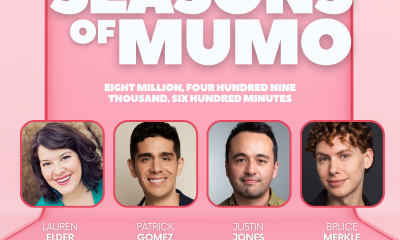
 Theater1 day ago
Theater1 day ago‘The Broadway Cage Match’ ready to rumble at WeHo’s Musical Mondays
-

 Features1 day ago
Features1 day agoNew mayor Chelsea Byers, hopes to make WeHo a model city for others to follow







